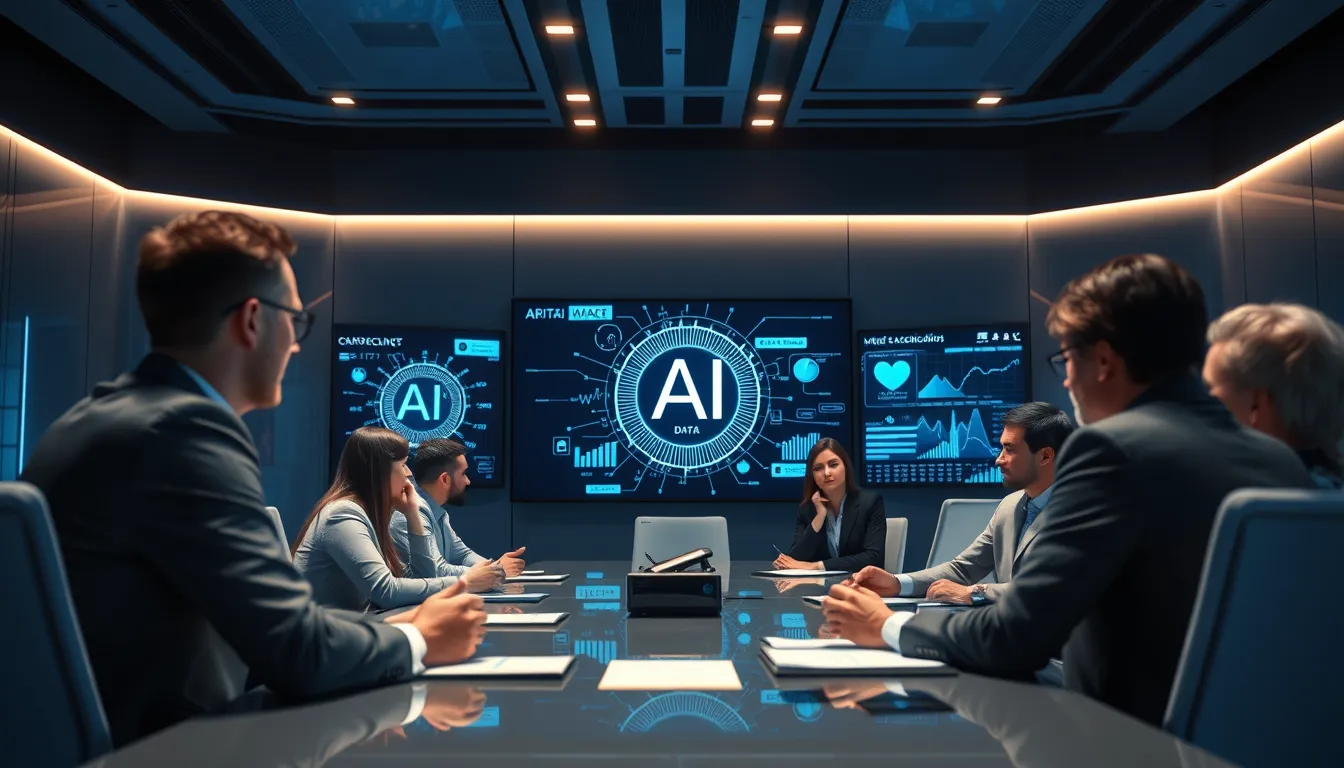Now Reading: Powerful AI in Healthcare Diagnostics: Boosting Patient Care
-
01
Powerful AI in Healthcare Diagnostics: Boosting Patient Care
Powerful AI in Healthcare Diagnostics: Boosting Patient Care

Powerful AI in Healthcare Diagnostics: Boosting Patient Care
Introduction
Artificial Intelligence (AI) is revolutionizing healthcare, transforming the landscape of diagnostics with smart, accurate, and efficient solutions. Today, AI in healthcare diagnostics is not just a trend but a critical advancement that is pushing medical boundaries. This article explains how AI improves diagnostic accuracy, enhances medical imaging, and boosts patient care while addressing challenges along the way.
Section 1: The Rise of AI in Healthcare
The integration of AI in healthcare has accelerated dramatically in recent years. Hospitals and research centers worldwide are embracing AI technology for tasks such as analyzing medical images, predicting disease trends, and even guiding complex surgeries. With a growing number of studies demonstrating significant improvements in diagnostic accuracy, AI has become an indispensable tool in early detection and treatment planning.
Key Areas Where AI is Impacting Healthcare:
- AI Diagnostics: AI-powered algorithms can process vast amounts of data to identify patterns that might be missed by human eyes. This precision is especially critical in early disease detection.
- AI Medical Imaging: Radiology and imaging have benefitted immensely from machine learning techniques. AI tools are now at the forefront of analyzing CT scans, MRIs, and X-rays, reducing misdiagnosis risks.
- AI Disease Prediction: Predictive analytics help physicians forecast disease progression and tailor proactive treatment plans.
Section 2: How AI Improves Diagnostic Accuracy
Medical professionals often face the challenge of making quick, accurate diagnoses. AI in healthcare diagnostics tackles this issue by providing decision support systems that analyze patient data in real time. By automating data analysis, AI reduces human error and enhances diagnostic precision.
Important factors include:
- Speed: AI systems process complex imaging data rapidly, allowing for timely diagnoses.
- Consistency: Algorithms remain consistent in their analysis, eliminating variability seen in human evaluations.
- Data Integration: Integration of patient history, lab results, and imaging data creates a holistic view for better decision making.
For further insights on the impact of AI in diagnostics, visit the official website of the World Health Organization at WHO.
Section 3: Benefits of AI in Healthcare Diagnostics
The benefits of AI in healthcare are expansive. Here are some of the key advantages:
- Improved Diagnostic Accuracy: With AI, hospitals are reporting increased accuracy in diagnosis, particularly in specialties like radiology and pathology.
- Enhanced Patient Care: Early and accurate diagnoses lead to timely interventions, ultimately resulting in improved patient outcomes.
- Better Resource Management: By automating routine tasks and analysis, medical professionals can focus on more complex cases and personalized patient care.
For example, one hospital implemented an AI diagnostic tool which resulted in a 25% reduction in diagnostic errors and a significant boost in patient satisfaction. Such success stories underscore the transformative power of AI in modern healthcare.
Section 4: Challenges of AI in Healthcare
Despite its clear benefits, the adoption of AI in healthcare diagnostics comes with challenges that must be addressed:
- Data Privacy: Ensuring patient data confidentiality is paramount. Techniques like data anonymization and robust security protocols are crucial in maintaining trust.
- Ethical Considerations: With AI making significant decisions during the diagnostic process, ethical guidelines must be strictly followed to ensure fair and unbiased outcomes.
- Integration with Existing Systems: Transitioning to AI-powered systems requires investment in infrastructure and comprehensive training for healthcare staff.
To mitigate these challenges, organizations such as the American Medical Association (AMA) provide guidelines and resources. Find more information at AMA.
Section 5: Future Prospects and Trends
The future of AI in healthcare diagnostics appears promising. With ongoing advancements in machine learning and deep learning algorithms, the potential applications of AI are expanding continuously. Emerging trends include:
- Enhanced AI Algorithms: Next-generation algorithms are focusing on higher precision and faster processing speeds, making real-time diagnosis a reality in critical care situations.
- Integration with Wearable Technology: The development of AI-enabled wearable devices will further bridge the gap between continuous monitoring and timely interventions.
- Personalized Medicine: By analyzing an individual’s genetic makeup and lifestyle factors, AI is paving the way for treatments tailored specifically for each patient.
Conclusion
AI in healthcare diagnostics is poised to redefine the landscape of modern medicine. Not only does it streamline complex diagnostic processes, but it also holds the promise for improved patient outcomes and efficient care. As the technology evolves, so too will the standards of care, making AI a cornerstone of future healthcare. Through balanced integration and mindful regulation, challenges related to data privacy and ethical considerations can be effectively managed. The journey of AI in healthcare is just beginning, and the transformative potential of this technology continues to grow.
By embracing AI in healthcare diagnostics, the medical community can look forward to a future where technology and human expertise work hand in hand for the betterment of patient care.
For additional information, readers can explore cutting-edge research at the National Institutes of Health (NIH) website at NIH.
In summary, the rapid integration of AI in healthcare is significantly altering diagnostic processes for the better, establishing new benchmarks in accuracy, speed, and personalized patient care. Professionals and organizations are encouraged to invest in AI-based solutions that promise to elevate standards across the healthcare spectrum.

























